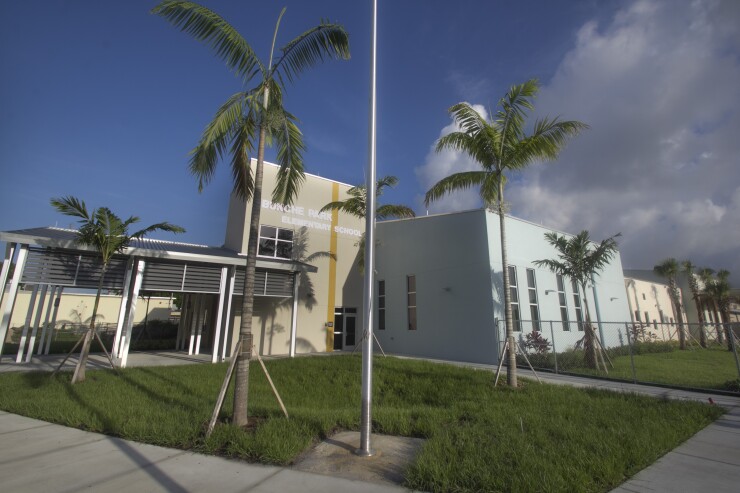As the treasurer for the country’s fourth-largest school district, Tony Vu says his goal is to lower borrowing costs for a voter-approved $1.2 billion general obligation construction program in south Florida.
Vu said his Miami-Dade County School District is “a Fortune 500-sized organization” that is limited by legislation and faces shrinking resources, growing mandates and tighter regulations.
A priority since becoming the treasurer 10 months ago, he said, was to create a
The Miami-Dade County School District has $3.73 billion of outstanding debt.

As he considered a new platform, Vu said he was approached by representatives of BondLink, a Boston-based financial technology company that provides investor outreach to municipal issuers. Vu liked what he saw.
“I think from the investor’s standpoint we can reach a larger group and a larger pool,” he said. “I think one thing we’ll definitely be able to do is have a more localized outreach effort.”
Vu said he expects BondLink to give him with the ability to get the district’s “story out there as effectively as possible,” and to conduct targeted and proactive outreach to new retail investors and existing bondholders.
“Higher transparency typically means lower borrowing costs,” he said.
Studies have supported the notion that issuers with good disclosure practices tend to elicit lower interest rates.
That was the conclusion of “When transparency pays: The moderating effect of disclosure quality on changes in the cost of debt,” a paper by Christine Cuny and Svenja Dube of New York University’s Stern School of Business.
In their research,
The “results suggest that disclosure quality can lower the cost of debt by attenuating the impact of negative economic outcomes,” they said.
Vu said he hopes improved disclosure will help the district lower borrowing costs as it completes its $1.2 billion 21st Century GO Bond Program approved by voters in 2012. To date, the district has issued $929 million of GOs, leaving $271 million in bonding capacity to be sold.
The district’s bond advisory committee reported that $546 million has been spent on new and renovated schools and technology upgrades as of Dec. 31.
The Miami-Dade School District also has $2.37 billion of certificates of participation lease-revenue debt outstanding, secured by its capital millage rate, impact fees, and other legally available funds.
The ability of Florida school districts to issue COPs in the future is in question as a result of the Legislature’s passage of House Bill 7069 in 2017.
The sweeping education bill required districts for the first time to share with charter schools a portion of their optional 1.5 millage rate dedicated to capital funding. One mill equals $1,000 of the assessed taxable property value.
HB 7069 “won't impact already issued debt,” Vu said. The bill requires outstanding debt service of the districts to be paid first before funds are shared with charter schools.
The State Board of Education is continuing to implement the bill, and has yet to determine how the law will impact the ability of Florida school districts to issue COPs in the future.
More than a dozen districts have filed a law suit challenging HB 7069.
The Miami-Dade County School District, which operates 342 traditional public schools and must share a portion of its capital millage with 130 charter schools in the county, is not participating in the HB 7069 suit.
S&P Global Ratings raised its rating on the district’s GO bonds to AA-minus from A-plus and its rating on the district's COPs to A-plus from A in April 2017. Moody's Investors Service assigns an Aa3 rating to the GOs and an A1 to the COPs. Both have stable outlooks.





